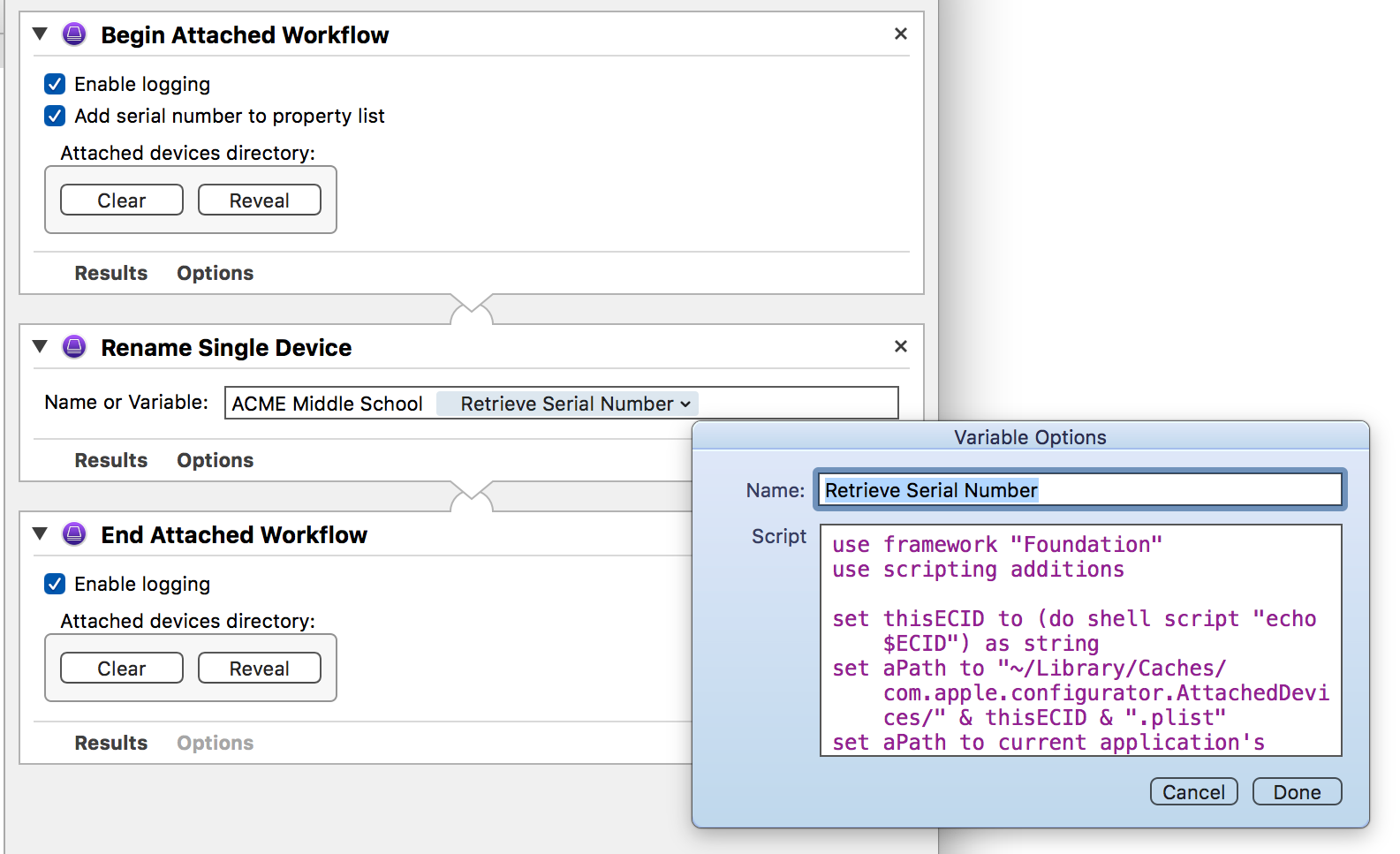

- MAC SHELL SCRIPT EXAMPLE VARIABLES HOW TO
- MAC SHELL SCRIPT EXAMPLE VARIABLES UPDATE
- MAC SHELL SCRIPT EXAMPLE VARIABLES FULL
- MAC SHELL SCRIPT EXAMPLE VARIABLES CODE
- MAC SHELL SCRIPT EXAMPLE VARIABLES ZIP
v $:/opt/sonar-scanner/.sonar/cache \Īlternatively, you can create your own container that includes the modified cacerts file. If you need to configure a self-signed certificate for the scanner to communicate with your SonarQube instance, you can use a volume under /tmp/cacerts to add it to the containers java trust store: docker pull sonarsource/sonar-scanner-cli This is configured in sonar-project.properties as follows: sonar.projectBaseDir=/home/ftpdrop/cobol/project1 analysis begins from jenkins/jobs/myjob/workspace but the files to be analyzed are in ftpdrop/cobol/project1. If the files to be analyzed are not in the directory where the analysis starts from, use the sonar.projectBaseDir property to move analysis to a different directory. This folder must contain a sonar-project.properties file if sonar.projectKey is not specified on the command line.Īdditional analysis parameters can be defined in this project configuration file or through command-line parameters.
MAC SHELL SCRIPT EXAMPLE VARIABLES FULL
You can find full details on the C/C++/Objective-C language page.
MAC SHELL SCRIPT EXAMPLE VARIABLES CODE
Scanning projects that contain C, C++, or ObjectiveC code requires some additional analysis steps. To scan using the SonarScanner Docker image, use the following command: docker run \ Running SonarScanner from the Docker image

If you need more debug information, you can add one of the following to your command line: -X, -verbose, or -Dsonar.verbose=true. You should get output like this: usage: sonar-scanner Verify your installation by opening a new shell and executing the command sonar-scanner -h ( sonar-scanner.bat -h on Windows).
MAC SHELL SCRIPT EXAMPLE VARIABLES UPDATE
Update the global settings to point to your SonarQube server by editing $install_directory/conf/sonar-scanner.properties: #- Default SonarQube server We'll refer to it as $install_directory in the next steps.
MAC SHELL SCRIPT EXAMPLE VARIABLES ZIP
To run SonarScanner from the zip file, follow these steps: # Path is relative to the sonar-project.properties file. Configuring your projectĬreate a configuration file in your project's root directory called sonar-project.properties # must be unique in a given SonarQube instance (The use of the variable like “echo my_var” will result in error”.The SonarScanner is the scanner to use when there is no specific scanner for your build system. Will print the value of “my_var” on the terminal. To use the variable, one need to use “$” sign in front of the variable name, like IN shell scripting the variable name can not be simply used to get the value of variable.
MAC SHELL SCRIPT EXAMPLE VARIABLES HOW TO
How to Use a Variable in Shell Scripting? And you do need double quotes, if the value of your variable has empty space in it, like The rule in shell scripting is that double quotes are not needed when there is no empty space in the variable. And you may also have noticed that there is no “double quotes” in defining the string variable. Here is example of defining a variable.Īn important thing to note in defining a variable, there is no empty space between “=” sign and the variable name and value. Variables in a shell script can begin with a letter or underscore and can contain letters/numbers/underscores. Typically, shell variables hold string values. Just like any programming language, a variable is name for holding some value.


Here is the basics of understanding variables in shell scripting. Once you get a hang of it, you might find it extremely useful.įrom the beginners’ perspective, one aspect of shell scripting that might drive one nuts is defining and using variables in a shell script. For sure, shell scripts looks crazy and hard to read/understand. Even then you may find the old school unix shell scripting very useful tool to learn and use. A number of beautiful and powerful programming languages, like Python, Ruby, and Perl are available for scripting needs.


 0 kommentar(er)
0 kommentar(er)
